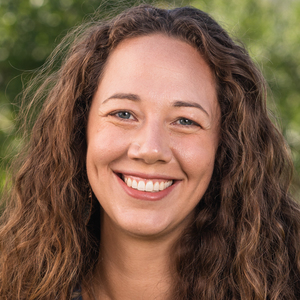There is a live question among Christians regarding the place of doubt in the life of faith. Karl Barth identifies two forms of Christian doubt: one innocuous, one dangerous, but both negative. While I think Barth rightly identifies two ways doubt can go wrong, any student of Pascal will argue that there’s also a way that learning to doubt well can bless the life of a believer.
Barth divides the experience of doubt into two types, which I’ll call intellectual and existential doubt. In the first case, a theologian, because he’s doing analytical work on Christian doctrines, reaches a moment where he’s pulled his theology to pieces and isn’t sure how the pieces go back together again. This kind of doubt, Barth says, isn’t something to worry about. It’s a natural consequence of analytical work, and provided we don’t “slack” and fail to put the pieces back together again, we’ll be fine.
A person who never entertains doubts, even about her most closely held beliefs, cannot really be said to be believing them well. This is why whenever I teach Hume’s Enquiry to my students, I try to make them worried about even the simplest relationships of cause and effect. One of my jobs as a teacher is to move beliefs from the “unreflectively accepted” category to the “thoughtfully concluded” category.
Barth’s second type, existential doubt, occurs when the theologian starts to wonder whether theology is worth doing at all, a doubt that seems more akin to despair than uncertainty. This despair might occur as he becomes overwhelmed with the problems of the world or the brokenness of the church on earth. It also might occur because of the theologian’s personal life, because he is either performing a faith he doesn’t believe, or devoting himself to theology to the point that he is no longer living in the world.
Barth argues that this kind of existential doubt is wholly negative, always the work of Satan. This is interesting, given that Barth also advises every theologian to expect exactly this kind of attack. God does not create doubt in the life of the believer, but in every believer, God allows the satanic temptation to doubt. One thing the church has been doing a better job of recently is teaching Christians to expect experiences of doubt.
One thing the church has perhaps been doing poorly, Barth notes, is mistaking confidence for shallowness, and doubt for depth. Kierkegaard talks about this kind of attitude in Fear and Trembling: the assumption that doubting is the first step to being a real intellectual. Kierkegaard spends the rest of the book firing back a different message: It’s not doubting faith that’s deep; it’s believing in it. The kind of constant reverent faith we associate with grandmothers isn’t simple, Kierkegaard argues; it’s the hardest thing in the world. Rather than despising it and glorifying our doubts, we should stand in awe and wonder at the greatness of that real thing, faith, when we see it.
So for Barth, doubt can be a useful intellectual tool for examining beliefs carefully. Otherwise, it is an attitude of hopelessness in the light of communal failings or personal hypocrisy, in which case it’s dangerous, especially if the doubter finds her own doubts impressive. I want to suggest that there’s a third type of doubt not mentioned by Barth. This is a type of existential doubt not founded in hypocrisy or despair, but in an accurate understanding of human fallenness. If used correctly, this doubt can lead us further into knowing God and ourselves.
For Pascal the first rule of human thought or behavior is that we are not what we were meant to be. God did not create us to live lives shrouded by doubt, but sin has distorted the faculties that give us knowledge. That means that understanding who I am according to the Christian story means understanding that I am, fundamentally, fallible. I know that my desires can distort the way I see the world. I know that my reason can become prideful and dogmatic, and lead me into error. So for Pascal, doubting myself is sometimes just good common sense. It’s thinking rightly about my own limitations in light of the distorting effects of sin.
This third type of doubt, if used correctly, can result in two fundamentally Christian virtues: humility and hope. Humility, because I understand that without God redeeming even my reason and my senses, I am always in danger of being deceived and deceiving myself. It’s easy to think that I can secure my faith by constructing a perfect system of proofs and arguments, but ultimately my faith is dependent on God’s faithfulness rather than my cleverness. The right kind of doubt reminds me of this. Secondly, as long as I remember that I need God to know truth, not just generally but at every moment, I can feel firm hope. Because I hope in God, even my doubts lead me to trust him more fully, to recognize my dependence on him, and to believe that through him I am coming to know fully, even as I am fully known.
Janelle Aijian (’96) is an assistant professor of philosophy at Biola’s Torrey Honors Institute. She holds a Ph.D. in philosophy from Baylor University, where her dissertation was an articulation and defense of Pascal’s foundationalist epistemology, and his sympathetic stance towards Pyrrhonian skepticism.
 Biola University
Biola University



